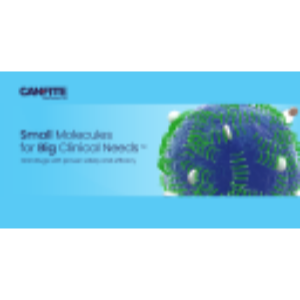Can Fite: Namodenoson Inhibits Pancreatic Carcinoma Published in Leading Scientific Journal; Robust anti-Cancer Effect & Molecular Mechanism of Action
- None.
- None.
- These data support namodenoson as a leading drug candidate to treat patients in an exploratory Phase II clinical study
PETACH TIKVA,
The article includes a summary on the robust inhibition of pancreatic carcinoma growth, both in vitro and in vivo and a definitive description of the molecular mechanism of action. The latter includes de-regulation of three signal transduction pathways known to play a pivotal role in the etiology and pathology of the disease, including the Wnt, NF-kB and the RAS signalling pathway. As a result, death of pancreatic carcinoma cells takes place via apoptosis. This mechanism is highly important since pancreatic carcinoma cells are resistant to the chemotherapy.
The Company is developing an exploratory Phase II study protocol that is designed to allow treatment of patients with pancreatic carcinoma who failed first line therapy. The study objectives will include safety and efficacy of the Namodenoson drug.
Currently, Namodenoson is being evaluated in a pivotal Phase III study that has been approved by both the
“We are very much encouraged by the excellent data in the pre-clinical studies demonstrating the impressive anti-cancer effect of Namodenoson against pancreatic carcinoma,” stated Dr. Fishman, Can-Fite’s Chief Scientific Officer and Executive Chairman. “We plan to start treating patients very shortly and hope that Namodenoson, with its positive safety and efficacy profile, will prolong life for pancreatic cancer patients.”
About Namodenoson
Namodenoson was evaluated in Phase II trials for two indications, as a second line treatment for hepatocellular carcinoma (HCC), and as a treatment for non-alcoholic fatty liver disease (NAFLD) and non-alcoholic steatohepatitis (NASH). It is currently in a Phase IIb trial for NASH and a pivotal Phase III for HCC. Namodenoson is a small orally bioavailable drug that binds with high affinity and selectivity to the A3 adenosine receptor (A3AR). A3AR is highly expressed in diseased cells whereas low expression is found in normal cells. This differential effect accounts for the excellent safety profile of the drug.
About Can-Fite BioPharma Ltd.
Can-Fite BioPharma Ltd. (NYSE American: CANF) (TASE: CANF) is an advanced clinical stage drug development Company with a platform technology that is designed to address multi-billion dollar markets in the treatment of cancer, liver, and inflammatory disease. The Company's lead drug candidate, Piclidenoson recently reported topline results in a Phase III trial for psoriasis. Can-Fite's liver drug, Namodenoson, is being evaluated in a Phase IIb trial for the treatment of non-alcoholic steatohepatitis (NASH), and enrollment is expected to commence in a Phase III trial for hepatocellular carcinoma (HCC), the most common form of liver cancer. Namodenoson has been granted Orphan Drug Designation in the
Forward-Looking Statements
This press release may contain forward-looking statements, about Can-Fite’s expectations, beliefs or intentions regarding, among other things, its product development efforts, business, financial condition, results of operations, strategies or prospects. All statements in this communication, other than those relating to historical facts, are “forward looking statements”. Forward-looking statements can be identified by the use of forward-looking words such as “believe,” “expect,” “intend,” “plan,” “may,” “should” or “anticipate” or their negatives or other variations of these words or other comparable words or by the fact that these statements do not relate strictly to historical or current matters. Forward-looking statements relate to anticipated or expected events, activities, trends or results as of the date they are made. Because forward-looking statements relate to matters that have not yet occurred, these statements are inherently subject to known and unknown risks, uncertainties and other factors that may cause Can-Fite’s actual results, performance or achievements to be materially different from any future results, performance or achievements expressed or implied by the forward-looking statements. Important factors that could cause actual results, performance or achievements to differ materially from those anticipated in these forward-looking statements include, among other things, our history of losses and needs for additional capital to fund our operations and our inability to obtain additional capital on acceptable terms, or at all; uncertainties of cash flows and inability to meet working capital needs; the initiation, timing, progress and results of our preclinical studies, clinical trials and other product candidate development efforts; our ability to advance our product candidates into clinical trials or to successfully complete our preclinical studies or clinical trials; our receipt of regulatory approvals for our product candidates, and the timing of other regulatory filings and approvals; the clinical development, commercialization and market acceptance of our product candidates; our ability to establish and maintain strategic partnerships and other corporate collaborations; the implementation of our business model and strategic plans for our business and product candidates; the scope of protection we are able to establish and maintain for intellectual property rights covering our product candidates and our ability to operate our business without infringing the intellectual property rights of others; competitive companies, technologies and our industry; risks related to the COVID-19 pandemic and the Russian invasion of
View source version on businesswire.com: https://www.businesswire.com/news/home/20231030418972/en/
Can-Fite BioPharma
Motti Farbstein
info@canfite.com
+972-3-9241114
Source: Can-Fite BioPharma Ltd.







